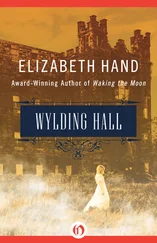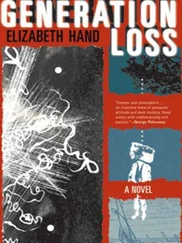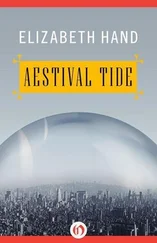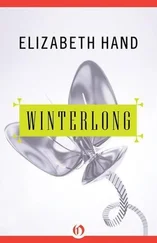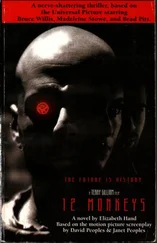“’Scuse me, ’scuse me, sir—”
He jolted from his dream, stood to let the driver and his lanky teenage son open up the truck bed. They unloaded the trees—white pine, he heard the driver say, lumber trees but they were harvesting them now, they needed the money too badly—and leaned them up against the storefront, hiding the plywood and sheet metal that covered its windows. Someone asked how much the trees were. Jack sucked his breath in at the price, but then thought of the money that would be coming from the sale of The Gaudy Book. Any day, maybe; besides which his credit was always good at Delmonico’s—a hundred years ago it had been his great-grandfather’s store, old Sabe Delmonico had bought it during the Depression but the Delmonicos considered the Finnegans part of their extended family, even now.
He bought a tree.
“Can you get that home by yourself?” Mrs. Delmonico eyed Jack dubiously, and before he could answer shouted out at the truck driver’s son. “Hey! YOU! C’mere, we got a job for you—carry this nice man’s tree for him, okay? Just a couple blocks. Tip him nice, Jackie, eh?”
She winked, turned to survey the fragrant benison that had befallen her shop.
So they brought the tree home, Jack and the boy. His name was Eben, he and his dad had driven down from New Hampshire, it took them three days.
“Truck kept breaking. We ran out of gas, then some guy tried to steal our tires, but my dad pounded him, hah!” The boy was thin but tall, exhilarated to be so far away from home. He smelled of pine resin and diesel oil. He shouldered the tree like a rifle and loped ahead of Jack, repeating over and over how he’d never been to New York and his father had promised they’d go to the city, after the trees were sold.
“My mom, she don’t like that!”
Jack shook his head. “I’m with her, Eben.”
At the gate to Lazyland Jack made the boy hand the tree over. “I can get it from here,” he explained. He wanted to bring the tree down to the house himself. “But wait, here—”
He held out a fifty-dollar bill. It wasn’t much, and for a moment he was afraid Eben would refuse to take it, or complain. But the boy only smiled, shook his head, and shoved his hands into his pockets.
“Hey, no sir, you just enjoy your tree, okay? Merry Christmas!” And he spun away, whistling to himself.
The tree was heavier than it had looked, for all that it was scrawny compared to Lazyland’s trees of yore. Jack dragged it down the driveway, looking back anxiously to see if he was leaving a trail of needles. Inside he was met by Keeley and Marz and Mrs. Iverson, who exclaimed and offered advice as to how to prop it up in the dining room until the old wrought-iron tree stand could be found.
“It’s like Charlie Brown’s tree!” Mrs. Iverson poked the tree where it leaned against the china cupboard, gazing disapprovingly at the needles that littered the carpet beneath.
“It’s beautiful, dear,” said Keeley. “Hush, Larena.”
“Can I help decorate?” begged Marz.
So then he had to go up to the attic, rooting around in one of the odd-shaped closets under the eaves until he found the boxes there, each carton big enough to hide several children and stuffed to overflowing with Christmas: garlands, plastic holly, tangled strands of dangerous-looking lights, old cards that turned to dust when he touched them, waterfalls of tinsel, ancient embossed Santas with cotton-batting beards that had frightened Jack when he was small, the wrought-iron stand (hooray!), wax balls from Germany with flowers on them, pine cones, ceramic and papier-mâché and cardboard Santas, elves, reindeer, trees, bells, chapels, snowmen, angels, and wreaths, as well as four statues of crippled boys and reformed cranks.
Last of all he pulled out an enormous carton that contained box upon box of Sparkle-Glo ornaments: rubies and emeralds and diamonds of blown glass, purple grapes, grinning clowns and leering dogs, churches and fish and a sailing ship with tissue-paper mast and rigging of gold filigree.
“Oh, look, look !” cried Marzana, sitting on the attic floor with legs akimbo, her belly awash in wrappings and ribbons and pine needles. She held up an icicle of blown glass, striated silver and cobalt. “They used to sell these in Rybnik!”
Jack smiled. “Is that where you grew up?”
The girl watched the little dagger turn slowly in the air before her. After a moment she said, “I don’t remember,” her voice distant.
Jack waited, but she said no more. “Okay.” He picked up one of the cartons. “I don’t think you better carry any of these.”
“But they’re not heavy!”
“I know, but they’re big. Here, you can carry this down, okay, that’s the star for the top, just don’t drop it—”
He made five trips, pausing on each landing to catch his breath then plunge back upward. There was only a single naked electric bulb in the old nursery attic, which cast shadows over more of the room than it lit. Outside, night was chasing the sky in harlequin colors, crimson and cadmium yellow, giving everything an expectant, febrile glow. The sensation that something was going to happen filled Jack, as well; a subcutaneous anticipation of Christmas, even a Christmas as threadbare as this one promised to be. There had been no more visits from the postman, and no word from GFI as to when he might expect the money from the sale of The Gaudy Book. So Christmas would pretty much consist of what he and Mrs. Iverson could cobble together, or from the largesse of Mrs. Delmonico. He had put aside any notion of attending GFI’s party—what could he have been thinking, with Marz ready to blow like the Hindenburg and no one but Jack and two ancients to attend her?
He walked to the far side of the room, and stared out the row of attic windows, down the black slope to the river. There was a sequined scatter of lights upon the Palisades, where for so long there had been darkness, and farther south the luminous arch of the George Washington Bridge, red and green curves like slices of neon watermelon, nibbled black where lights had burned out on the spans. The sight should have comforted him. Instead it made him uneasy. It was like seeing Marzana in his aunt Mary Anne’s bed that first night she appeared at Lazyland—he felt certain that something was very wrong, somewhere, despite this brave false show. Any moment now he would find out what it was.
He shivered and turned from the window. What a way to think at Christmas. Then he hefted the last carton of ornaments, switched off the attic light, and hurried downstairs to attend to the tree.
But of course the power was down again when Jule arrived unexpectedly at Lazyland, a week and a half later. It had failed the same night that Jack and Marzana and Mrs. Iverson decorated the tree in the formal dining room, with Keeley officiating from a chair. It was not exactly resplendent. Even with the lights turned off it retained its sadly etiolated quality, and drooped in the shadow of the robust Chippendale cabinet because there was no true darkness against which the glory of glass and gold and painted tin could shine. The strings of old lights (dangerously frayed and much repaired with electrical tape) glowed bravely, but they were overshadowed by the vulgar show outside.
Still, they all stood and admired it. Jack made some adjustments (Marz lacked a light touch with tinsel). Keeley suggested that the crenellated spike that topped the tree could perhaps go a little more to the left, and Jack was just clambering back onto the kitchen stool when—
Eeeeep…
Dying wail of the CO detector, chorus of clicks from answering machine; and the gallant tree went dark.
“Nooo!” cried Marzana.
Читать дальше

